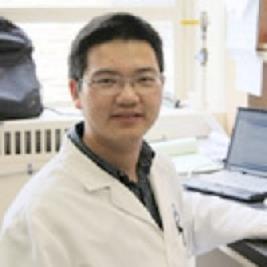
Trainee Spotlight: Yong Zhang, MD, PhD
-

Yong Zhang, MD, PhD
Research Associate
Dr. David Wiest's Lab
Fox Chase Cancer Center
[email protected]Biography
Thirteen years ago, when I was an MD/MS student at the Medical College of Soochow University in China, I became interested in human immunology and hematology. During my training, I studied Severe Aplastic Anemia (SAA), an intriguing human autoimmune disease in which the patient’s own mature white blood cells damage his or her bone marrow causing a deficiency of all blood cells, including red blood cells, white blood cells and platelets. Although I was initially interested in medicine, my experiences in the lab pushed me to pursue more research training. Following medical school, I pursued my PhD training at the Shanghai Institute of Hematology with Dr. Ting Xi Liu, a hematologist using the novel zebrafish model system to study the human immune system and malignant transformation. During this time, I successfully established “transparent” transgenic zebrafish lines to identify novel behaviors and functions of innate immune cells and to model human myeloid leukemia in fish. Following my residency training through the Shanghai Jiao-Tong University School of Medicine, I came to the United States to begin my postdoctoral training at Fox Chase Cancer Center with Dr. David Wiest. My current work integrates my training in hematology, research and medicine where I study the pathological etiology of Ribosomopathies and Severe Combined Immunodeficiency (SCID). Unraveling the molecular pathways underlying human blood development and leukemogenesis will be the focus of my laboratory when I become an independent investigator.
Research Overview
Primary immunodeficiencies, like SCID, result from a heterogeneous set of genetic defects that disable either the development, or the function, of T lymphocytes. Without functional T lymphocytes, human SCID infants are particularly vulnerable to infections early in life; therefore, early disease screening is critical. To better understand and identify the genetic causes of immunodeficiencies, we collaborated with Dr. Jennifer Puck at UCSF Benioff Children’s Hospital, to identify novel disease-associated genes in SCID infants by exome sequencing. From eleven SCID infants, we identified thirty-three novel candidate genes. In an infant with leaky SCID, craniofacial and dermal abnormalities, and absent corpus callosum, we discovered a heterozygous, de novo, missense mutation (pN441K) in B-Cell CLL/Lymphoma 11B (BCL11B), a gene previously implicated in T cell development and transformation in mouse models. Expression of this mutation in zebrafish resulted in defective hematopoietic stem cell positioning and migration consistent with the defects observed in human SCID infants. These defects were reversed by ectopic expression of intact, but not mutant (pN441K), human BCL11B. Together these data demonstrate that coupling exome sequencing with candidate gene evaluation in zebrafish is a powerful approach for identifying and evaluating new disease-associated genes. Furthermore, our results highlight exome sequencing as a powerful screening tool for heterogeneous immunodeficiencies like SCID.
Featured Publication
Bcl11b Defect in a Human Severe Combined Immunodeficiency with Multisystem Anomalies.
Punwani D*, Zhang Y* (*contribute equally), Yu J, Cowan M, Kwan A, Mendelsohn A, Rana S, Chellappan A, Srinivasan R, Brenner S, Wiest DL, Puck JM. New England Journal of Medicine, 2016, In Press.
